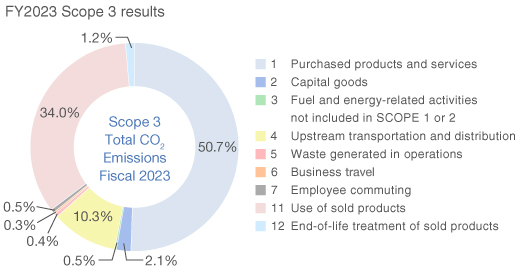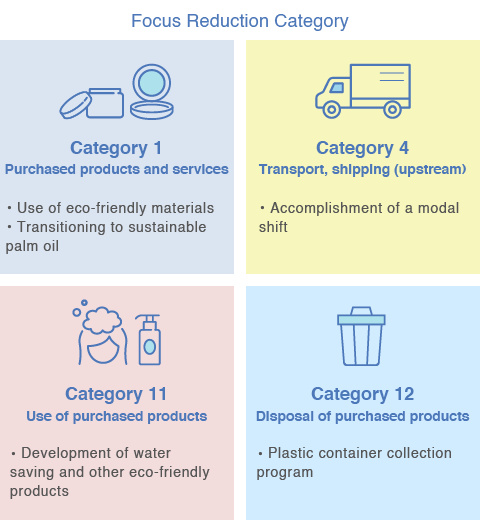Low-Carbon Transition Plan
As an organization engaged in addressing environmental problems being confronted by the world, the KOSÉ Group is working to preserve the global environment. We see climate change as an essential management priority in our efforts to drive business growth while helping achieve a sustainable society. The results of climate change scenario analyses have given us a strong belief in the importance of establishing aggressive targets for reducing CO2 emissions from our business activities in order to ensure temperatures rise considerably less than 1.5˚C compared to preindustrial levels.
Backdrop for Goal Setting
The KOSÉ Group is carrying out sustainable initiatives aimed at solving social problems under the Sustainability Strategy, which was formulated in FY2020. Addressing climate change around the world has become an urgent issue in recent years, and our role and responsibilities have grown in this regard.
In order to actively contribute to reducing CO2 emissions throughout the Group as part of our efforts to address the significant issue of climate change, we have set a CO2 emission reduction target. In July 2022, we revised the target upward to align with the SBT 1.5°C Target and obtained certification for it. At the same time, a new net-zero target for 2050 was established.
◆ Reduce Scope 1 and 2 CO2 emissions by 55% (for SBT 1.5℃ Target Certification) and Scope 3 CO2 emissions by 30% (for SBT Certification) by FY2030
All targets are compared to FY2018
◆ Achieve carbon neutrality by FY2040 (Scope 1 and 2)
◆ Achieve net-zero emissions by FY2050 (Scope 1, 2, and 3)
CO2 emissions figures will be independently verified.
The KOSÉ Group has included Cat11 "Emissions during Product Use" in its Scope3 emission reduction targets. However, these target items are voluntary calculation items under the GHG Protocol; therefore, they are not included in the scope of the SBT targets as required by the SBTI.
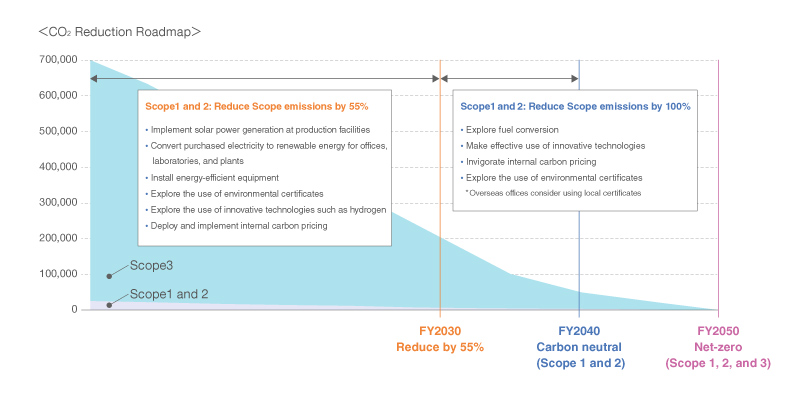
Promoting Decarbonization Strategies throughout the Value Chain
The KOSÉ Group is working hard to reduce our environmental impact not only with respect to production (Scope 1 and 2) but the entire product lifecycle, from raw material procurement to disposal (Scope 3).
CO2 emissions in the product lifecycle

Carbon Footprint Calculation
In 2022, KOSÉ participated in the “Model Project for Carbon Footprint of Products and Services” conducted by the Ministry of the Environment. In the project, we calculated the carbon footprint (CFP) of the SEKKISEI Clear Wellness series of the SEKKISEI skincare brand, which represents CO2 emissions throughout the product life cycle, from raw material procurement to disposal and recycling. As a result of the calculation, when comparing the CFP of the bottled product and the refill product, the refill product emits approximately 28% less CO2 than the bottled product, and the difference in the process of "raw material procurement" and "disposal/recycling" was visualized figures. We also confirmed the effectiveness of our sustainable measures, such as the use of corrugated cardboard in our products and the introduction of renewable energy in the manufacturing and production processes. Based on these results, we will continue to develop environment-friendly products and reduce CO2 emissions.
Initiatives to Address Climate Change
Current States of CO2 Emissions
From its business activities to the entire value chain, the KOSÉ Group is actively working to reduce CO2 emissions from a wide range of perspectives.
Specific Measures in the Decarbonization Plan
| Scope of measures | Actions | Details |
|---|---|---|
| Scope 1 | Energy saving | Establish an electricity plan in FY2018 in a new annex at the Gunma Factory |
| Scope 2 | Energy creation | Use cogeneration systems at the Gunma Factory |
| Energy saving | Procure renewable energy for the Gunma Factory, Sayama Factory, and some of other factories | |
| Procure electricity with environmental added value for the ALBION's Shirakami Laboratory | ||
| Promote LED usage at business sites | ||
| Scope 3 | Raw material procurement (Category 1) | Use sustainable raw materials to reduce carbon emissions and plastic waste |
| Transportation (Category 4) | Promote a modal shift | |
| Use of products (Category 11) | Develop water saving and other eco-friendly products | |
| Disposal of products (Category 12) | Plastic container collection program | |
| Reduce the use of container and packaging plastic |
Decarbonization Initiatives (Scope 1 and 2)
Energy saving (Scope 1 and 2)
Implementation of energy-saving measures, such as the use of blackout nets and LED lights in offices, to further reduce the power consumption.
-
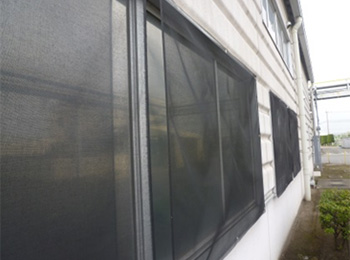
KOSÉ INDUSTRIES‘ Gunma Factory
-
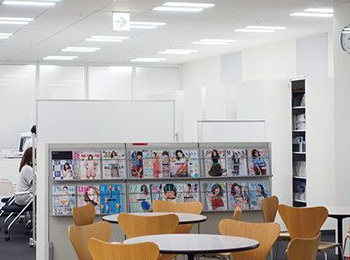
KOSÉ headquarters
Renewable energy (Scope 2)
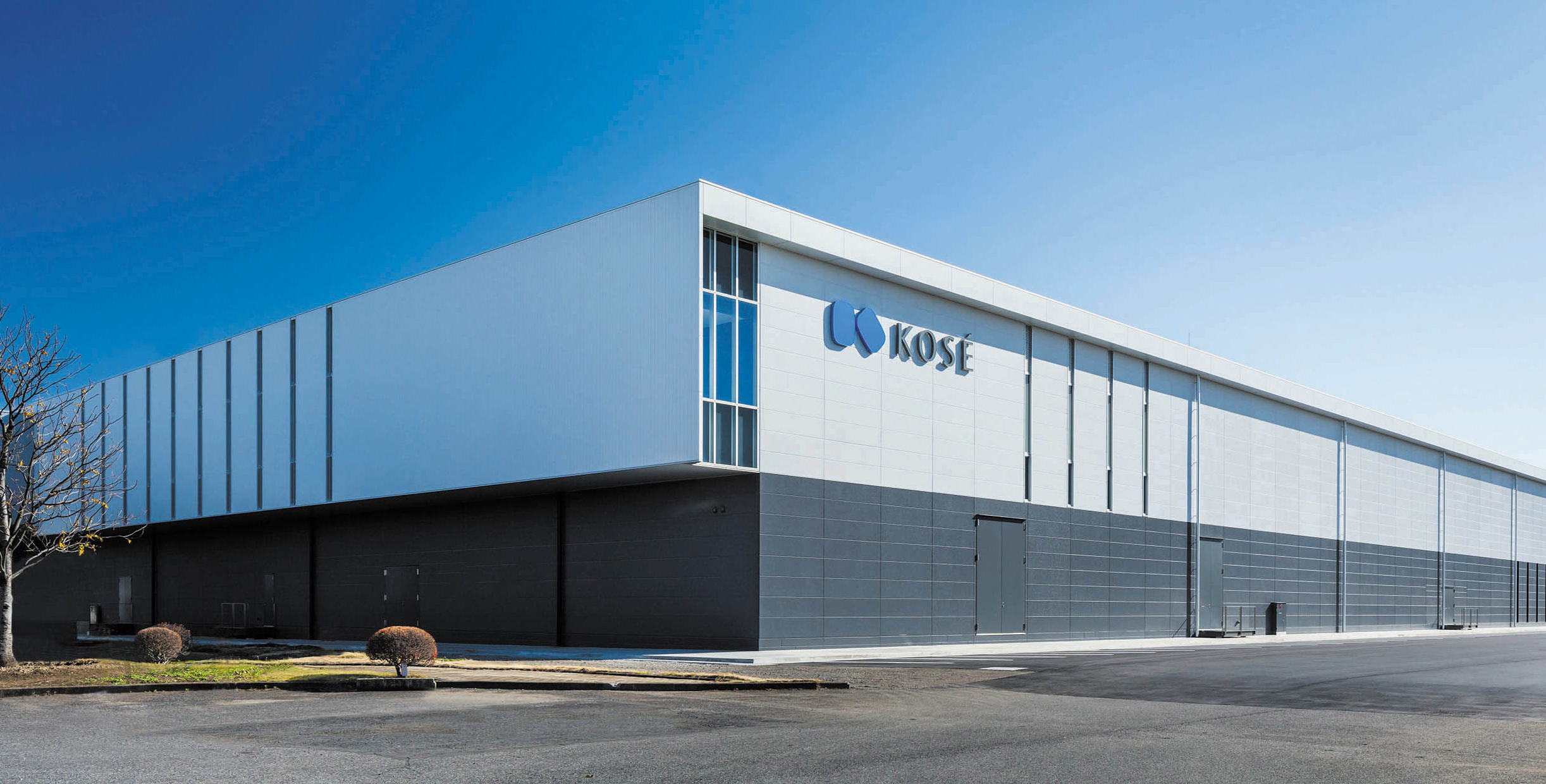
KOSÉ INDUSTRIES’ Gunma Factory
The Group has been procuring renewable energy from KOSÉ INDUSTRIES’ Gunma Factory since January 2021. Procurement of renewable energy at KOSÉ INDUSTRIES’ Gunma Factory (from January 2021) and Sayama Factory (from February 2023). We will continue to procure renewable energy as we reduce CO2 emissions from our purchased power.
Energy creation (Scope 2)
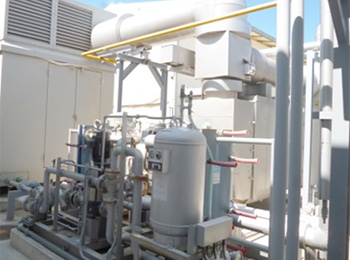
KOSÉ INDUSTRIES‘ Gunma FactoryCogeneration system using natural gas
We use a cogeneration system at our Gunma Factory. Generating its own electricity using natural gas and making effective use of waste heat from the motors to produce cosmetics reduces its environmental impact.
Decarbonization Initiatives (Scope 3)
Along with reducing CO2 emissions produced by its factories, laboratories, and offices, the KOSÉ Group is also working to reduce its environmental impact throughout the value chain. Reduction efforts are focused on categories that account for the majority of emissions throughout the value chain (Scope 3). These reduction efforts are also aimed at helping resolve social issues that include the problem of plastic and other waste.
Product Initiatives (Categories 1 & 12)
Using biomass plastic and glass for the Liposome Advanced Repair Serum in the DECORTÉ product line
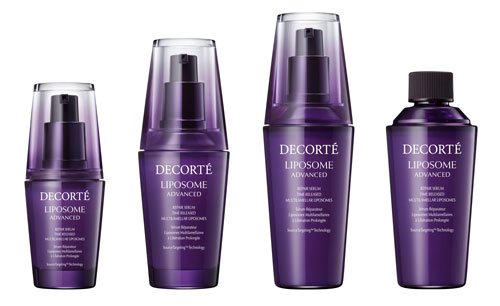
We use biomass plastic for our bottles and caps.Our 30 mL and 50 mL products are packaged in glass containers.
Using recycled PET resin for Salon Style BIOLISS Botanical haircare products from KOSÉ Cosmeport
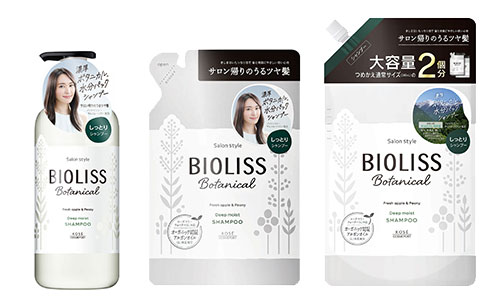
We use recycled PET for all Salon Style BIOLISS Botanical Shampoo (Deep Moist) products, including refill and large refill containers.
Using biomass plastic and cardboard material for the SEKKISEI CLEAR WELLNESS series
We reduce our environmental impact by committing to the use of eco-friendly materials for our product packaging while preserving the natural texture of these materials.
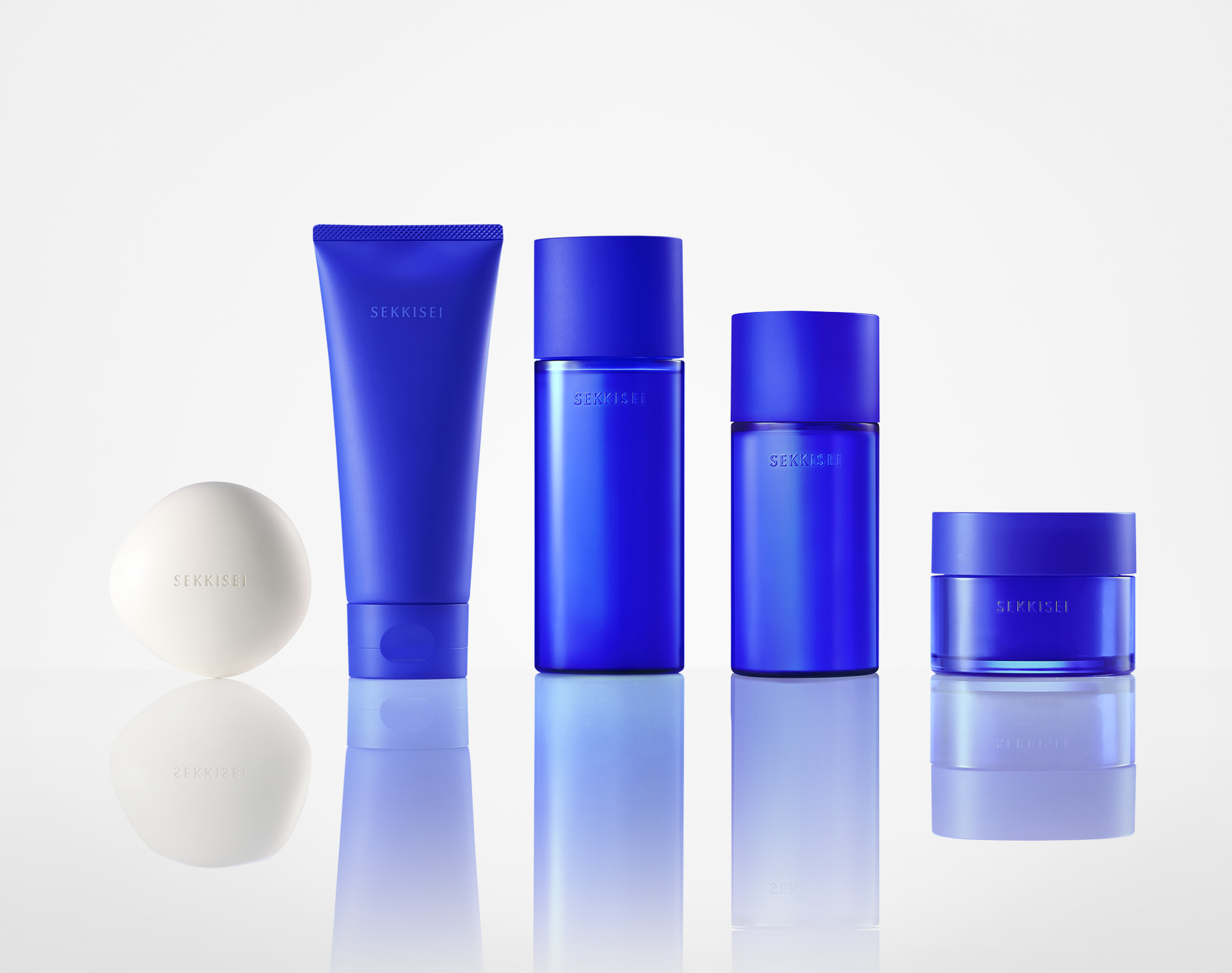
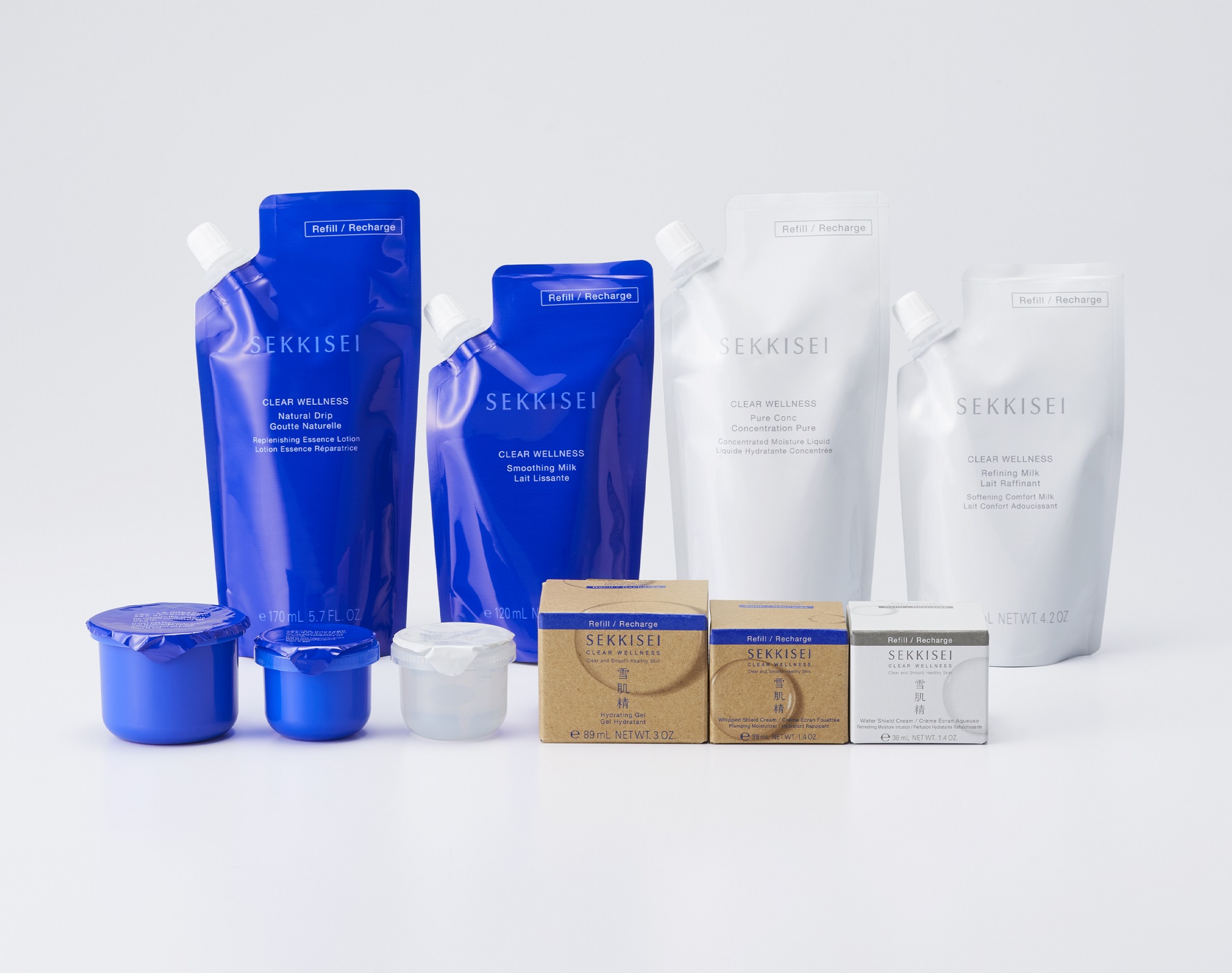
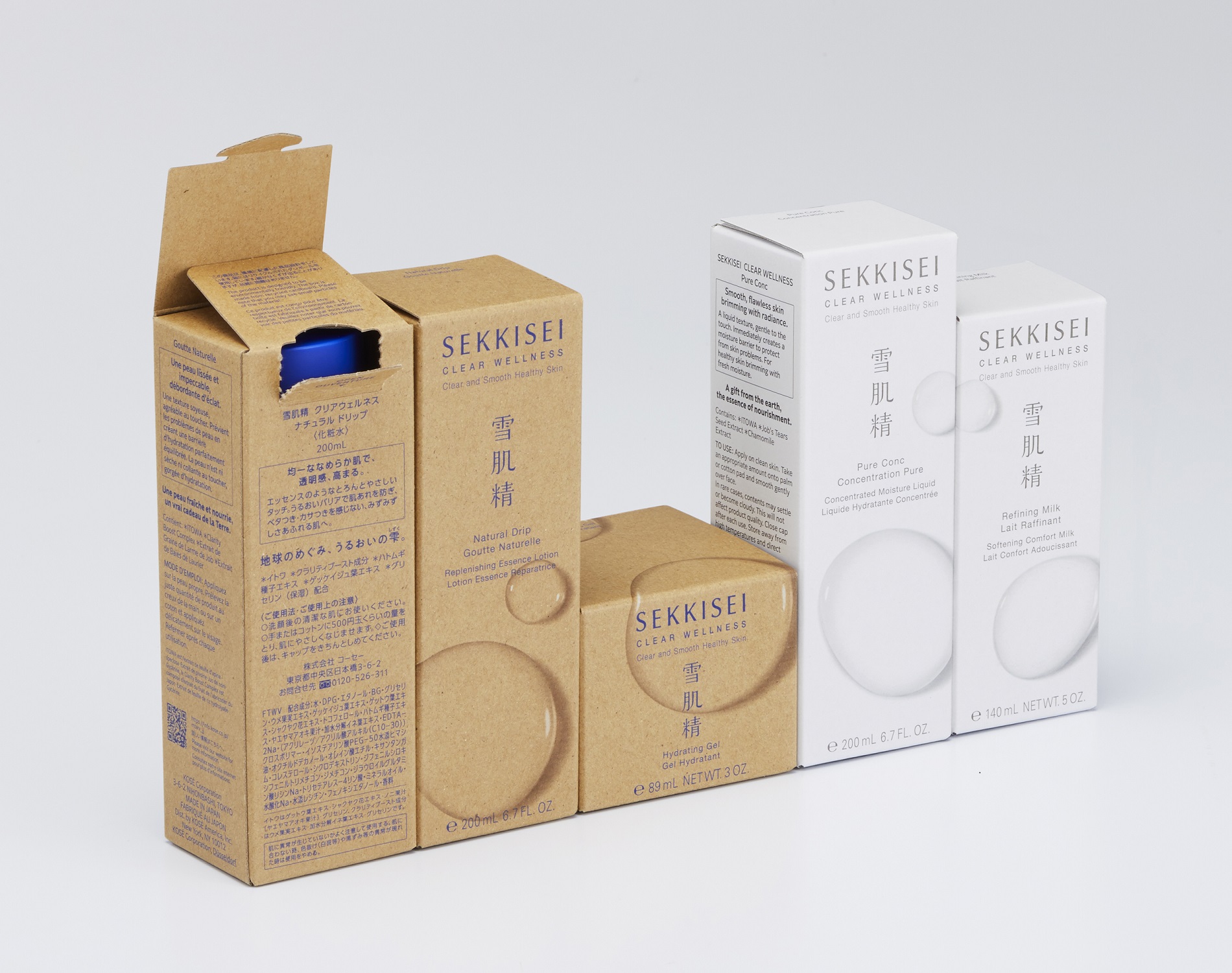
Logistics and In-store Initiatives (Categories 1, 4, and 12)
Using eco-friendly materials for the translucent films in our cosmetics sections
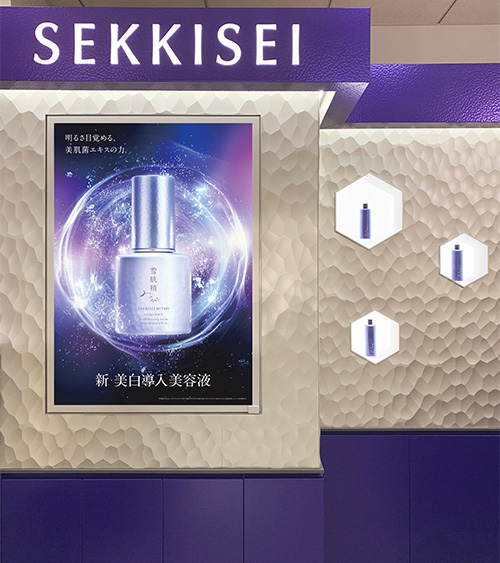
We changed the translucent film used for the backlit display at our global products corner from plastic film to LIMEX, a filler-dispersed composite material that contains more than 50% inorganic materials such as limestone.
Logistics Initiatives
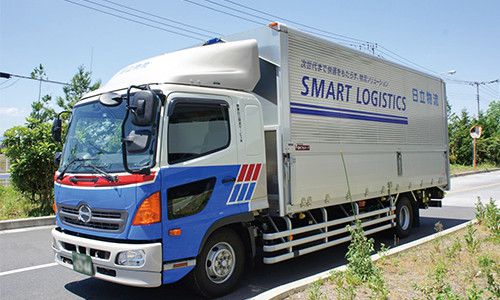
As efforts to reduce our environmental impact, along with making joint use of charter flights with other companies in the industry and improving load efficiency on transport flights to our physical distribution bases across the country, we are undergoing a modal shift whereby we are now using trains to transport goods from the Kanto region to Hokkaido and Kyushu.
Reducing CO2 Emissions from Procurement of Raw Materials (Category 1)
< Supply Chain Engagement Strategy >
We have established and published KOSÉ Basic Procurement Policy which outlines our basic approach to procurement activities in five areas: ensuring quality and safety, fairness and equity, compliance with laws and social norms, coexistence and co-prosperity, and maintaining information security.We work toward sustainable procurement in consideration of global environmental conservation, resource protection, safety, human rights, and more.
◆ Engagement with suppliers
We have established “Sustainable Procurement Guidelines” and work with our suppliers. Once a year, we ask our leading suppliers in Japan and overseas, who have reached a certain transaction value with KOSÉ over the past three years, to complete a Self-Assessment Questionnaire (SAQ) on CSR procurement.For suppliers who are members of Sedex and sharing information with us, we use the SAQ. For other suppliers, we use the CSR Procurement Self-Assessment Questionnaire of the United Nations Global Compact Network Japan (GCNJ).
< Items to be confirmed in the SAQ Survey >
Social responsibility and respect for human rights:
- Compliance with laws and corporate ethics policy.
- Provide a workplace environment that takes health and safety into consideration.
- Eliminate discrimination based on race, nationality, religion, creed, disability, gender, age, birthplace, sexual orientation, child labor, forced labor and exercise consideration towards the socially vulnerable.
- Corruption prevention, bribery prohibition, etc.
Global environmental protection and resource conservation:
- Monitor energy and water consumption and waste volumes, and manage reduction targets.
- Control chemical substances and emissions related to laws and regulations to prevent pollution.
◆ Response to forest-related issues
We use “palm oil” as one of the essential raw materials for cosmetic ingredients.
Many countries where palm oil is produced are facing social issues such as the reduction of forest area due to illegal logging and land use conversion. The reduction of forest area as a CO2 sink, which plays an important role in mitigating climate change, is also one of important issues for us.Therefore, we are working to address forest-related issues by procuring sustainable palm oil.
Aiming to Achieve a Decarbonized Society
Guided by the Beauty Partnership described in our "VISION 2026" mid- to-long-term corporate vision, the KOSÉ Group is making efforts to achieve a decarbonized society. This involves a focus on sustainably improving corporate value by carrying out CO2 emissions reduction activities not only in our own business activities but throughout the entire value chain.
For the Global Environment
Top
Environmental Indicators
Initiatives to Address Climate Change
Low-Carbon Transition Plan
Measures for Circular Economy
Commitment for Biodiversity
Efforts related to products
Efforts in manufacturing
Efforts at offices, logistics operations, and shops
